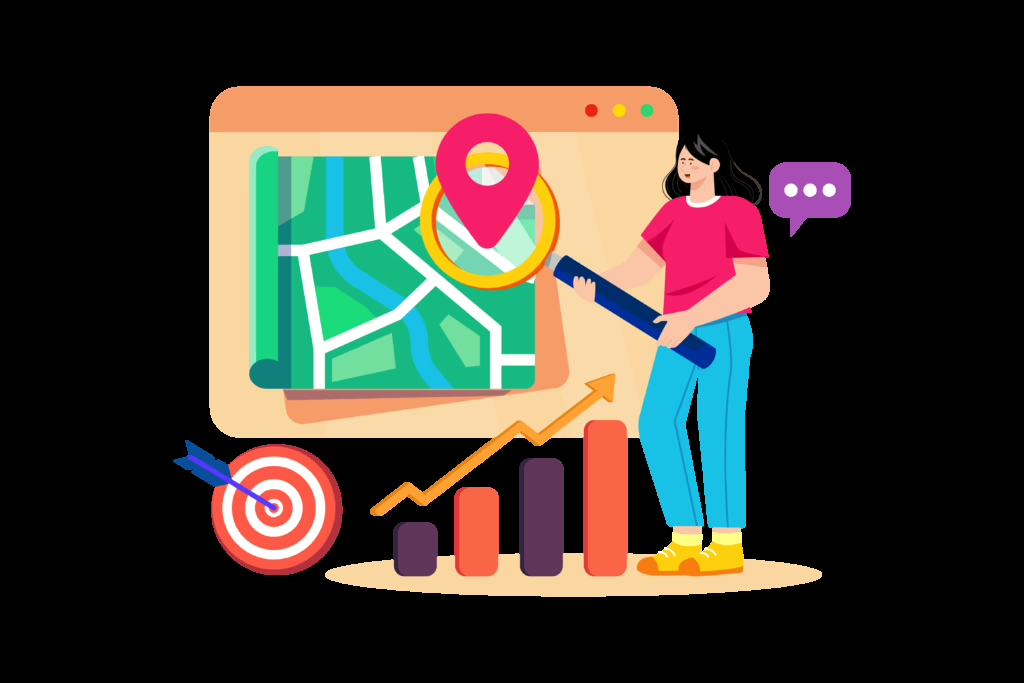Our Blog
We share our knowledge
Building Brand Loyalty Through Digital Channels: The Digital Advantage
Brand loyalty today isn’t just about repeat business—it’s about emotional connection. People aren’t just buying your product; they’re buying into your brand. And more often than not, those connections are being formed, nurtured, and solidified online. If you’re not prioritizing building brand loyalty through digital channels, you could be missing one of your biggest growth […]
Hyperlocal Marketing in Canada: Targeting and Engaging Your Community
Let’s face it—blanket marketing campaigns just don’t cut it anymore. Today’s consumers expect content that’s not only relevant but rooted in their everyday surroundings. That’s where hyperlocal marketing steps in. For Canadian businesses, this strategy isn’t just smart—it’s essential. Whether you’re a family-run bakery in Halifax or a clothing boutique in Vancouver’s Kitsilano, connecting with […]
In today’s digital age, businesses are constantly seeking innovative ways to engage with their customers. The chatbot is one of the most transformative tools that has emerged in recent years. Powered by Artificial Intelligence (AI) and machine learning capabilities, chatbots are revolutionizing the way companies interact with their clients, offering instant, personalized responses at any time of the day. In this article, we’ll delve into the rise of chatbots and how they’re enhancing customer engagement.

What is Customer Engagement?
Customer engagement is a buzzword that has gained significant traction in the business world, but what does it truly mean? At its core, customer engagement refers to the depth of the relationship a customer has with a brand. It’s not just about making a sale or resolving a complaint; it’s about creating meaningful interactions that foster loyalty and drive long-term customer relationships.
Beyond Transactions: While sales are crucial to any business, customer engagement goes beyond mere transactions. It encompasses every touchpoint a customer has with a brand, from browsing a website, reading a blog post, interacting on social media, to post-purchase support.
Emotional Connection: Engaged customers often have an emotional connection to the brand. They don’t just buy products or services; they resonate with the brand’s values, mission, and vision. This emotional bond makes them more likely to advocate for the brand, recommend it to friends and family, and remain loyal over time.
Two-Way Interaction: Customer engagement is not a one-way street. It’s a dynamic, two-way interaction where both the customer and the brand benefit. Brands get valuable feedback, insights, and loyalty, while customers receive personalized experiences, value, and a sense of belonging.
Measuring Engagement: Engagement can be measured in various ways, from tracking website visits, social media interactions, and email open rates to more qualitative measures like customer feedback and net promoter scores. The key is to identify metrics that align with the brand’s goals and continuously monitor and optimize them.
The Role of Technology: In today’s digital age, technology plays a pivotal role in enhancing customer engagement. Tools like chatbots, CRM systems, and analytics platforms allow businesses to personalize interactions, automate processes, and gain insights into customer behaviour, driving more meaningful and impactful engagements.
What are Chatbots?
Chatbots are computer programs designed to simulate human conversation. They interact with users in a conversational manner, often through text-based interfaces like chat or messaging apps. With the power of AI, chatbots can understand and process user queries, providing relevant and immediate answers.
The Surge in Popularity
The adoption of chatbots has skyrocketed in recent years. Here’s why:
24/7 Availability: Unlike human agents, chatbots are available round the clock. This ensures that customers from different time zones or those browsing after typical business hours receive immediate assistance.
Cost-Efficiency: Implementing a chatbot can significantly reduce the costs associated with customer service. Instead of hiring a large team to handle inquiries, a well-designed chatbot can manage a vast majority of common questions.
Instant Responses: In an era where consumers expect quick solutions, waiting times can be detrimental. Chatbots eliminate this issue by providing instant answers, enhancing user satisfaction.
Scalability: During peak times, businesses can get overwhelmed with customer inquiries. Chatbots can handle thousands of queries simultaneously, ensuring no customer is left waiting.
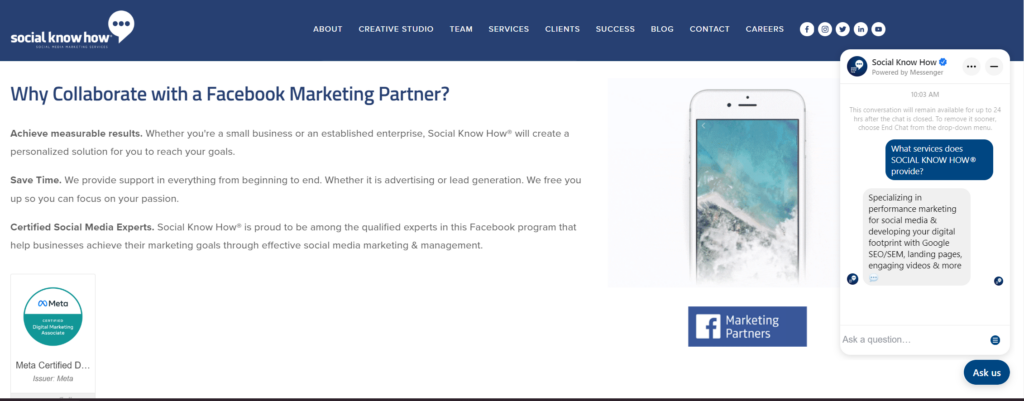
Enhancing Customer Engagement with AI
Chatbots, when powered by AI, can do more than just answer frequently asked questions. They can:
Personalize Interactions: AI-driven chatbots can analyze user behavior and preferences, tailoring their responses accordingly. This creates a more personalized and engaging experience for the user. By understanding the user’s past interactions and preferences, chatbots can offer recommendations that are aligned with the user’s interests, leading to a more meaningful engagement.
Handle Complex Queries: Advanced chatbots can understand context, sentiment, and nuances in language, allowing them to handle more intricate questions and even upsell or recommend products. They can mimic human-like conversations, making the user feel as if they are interacting with a real person. This capability ensures that users receive accurate and relevant information, enhancing their trust in the brand.
Integrate with Other Systems: Chatbots can be integrated with CRM systems, inventory databases, and more. This allows them to pull real-time data and provide accurate information to users. For instance, if a user inquires about the availability of a product, the chatbot can instantly check the inventory database and provide a real-time update.
Learn and Improve: Chatbots can be integrated with CRM systems, inventory databases, and more. This allows them to pull real-time data and provide accurate information to users. For instance, if a user inquires about the availability of a product, the chatbot can instantly check the inventory database and provide a real-time update.
Instantaneous Support: In today’s fast-paced world, customers expect immediate responses. AI chatbots cater to this need by providing instant answers to customer inquiries, reducing wait times, and improving the overall customer experience.
Chatbots and Human Agents: A Perfect Duo
AI chatbots can complement human agents effectively. While chatbots handle routine inquiries and tasks, human agents can focus on more complex issues, ensuring a seamless customer support experience. This collaboration between man and machine ensures that customers always receive the best possible support, regardless of the nature of their inquiry.
Getting Started with AI Chatbots
Businesses looking to harness the power of AI chatbots should first identify their specific customer engagement needs. Once these needs are clear, they can choose a chatbot platform or development framework and collaborate with experts to design, implement, and train chatbots to meet those needs.
Ready to Elevate Your Customer Engagement?
Harness the power of AI-driven chatbots and revolutionize your customer interactions. At Social Know How, we’re experts in leveraging technology to enhance customer engagement. Don’t get left behind in the digital age. Contact us today for a Free Social Media Assessment and discover how we can transform your business’s online presence.
In today’s digital age, Instagram has emerged as a powerful platform for businesses to connect with their target audience. With over a billion monthly active users, Instagram offers a unique blend of visual storytelling and engagement opportunities. However, to truly harness the platform’s potential, businesses need to strike a balance between organic engagement and paid reach. Here’s a deep dive into how combining these two can create a winning formula for your brand on Instagram.

Organic Engagement on Instagram
Organic engagement refers to the interactions your content receives without any paid promotion. It’s the genuine likes, comments, shares, and follows that come from your existing followers and those who discover your content through hashtags, the Explore page, or other organic means.
Benefits of Organic Engagement:
Building Authentic Relationships: Organic content allows brands to showcase their personality, values, and stories. It fosters genuine connections with followers and encourages two-way conversations.
Cost-Effective: Since you’re not paying for organic posts, it’s a cost-effective way to maintain an active presence on Instagram.
Establishing Brand Authority: Regular organic posts can position your brand as an authority in your niche. Sharing valuable content, tips, and insights can make your brand a go-to source for information.
Feedback and Insights: Organic engagement provides valuable feedback from your audience. Comments and direct messages can offer insights into what your audience likes, dislikes, and expects from your brand.
Paid Reach on Instagram
While organic engagement is crucial, the ever-changing Instagram algorithm can sometimes limit the visibility of your posts. This is where paid reach comes into play. Paid reach involves promoting your posts to reach a larger or more specific audience.
Benefits of Paid Reach:
Targeted Exposure: With paid ads, you can target specific demographics, locations, interests, behaviors, and more. This ensures that your content reaches the right people at the right time.
Boost Brand Awareness: Paid promotions can significantly increase your brand’s visibility on Instagram, introducing your brand to potential new followers and customers.
Drive Specific Actions: Whether you want to increase website visits, get more app downloads, or boost e-commerce sales, paid ads can be tailored to meet specific business objectives.
Flexible Budgeting: Instagram ads offer flexible budgeting options. Whether you’re a small business or a large enterprise, you can set a budget that suits your needs and adjust it based on performance.

The Synergy of Organic and Paid Strategies
When organic and paid strategies are used in tandem, they complement each other, creating a holistic Instagram marketing approach. Here’s how:
Enhanced Visibility: While organic posts engage your existing followers, paid promotions expand your reach, ensuring that your content gets in front of new potential followers and customers.
Trust Building: Regular organic posts establish trust and credibility. When a user sees a paid ad from a brand they recognize and trust, they’re more likely to engage with it.
Data-Driven Decisions: Insights from both organic and paid analytics can inform your overall Instagram strategy. For instance, if an organic post performs exceptionally well, it might be worth promoting it to reach a larger audience.
Ready to Amplify Your Instagram Strategy?
Harnessing the power of both organic engagement and paid reach on Instagram is crucial for any business looking to make a significant impact. But navigating the intricacies of the platform can be challenging.
At Social Know How, we specialize in tailoring social media strategies to fit your unique business needs. From planning and optimizing to executing and managing, our proven SOCIAL POEM formula ensures your brand stands out in the crowded digital space.
Why choose Social Know How?
Targeted Solutions: We offer personalized solutions to help you reach your marketing goals effectively.
Expertise: As a certified Facebook Marketing Partner, our team is equipped with the knowledge and skills to elevate your social media presence.
Creative Studio: Our in-house creative studio ensures your content resonates with your audience, capturing those special moments that matter.
Ready to take your Instagram game to the next level? Get your FREE Social Media Assessment today!
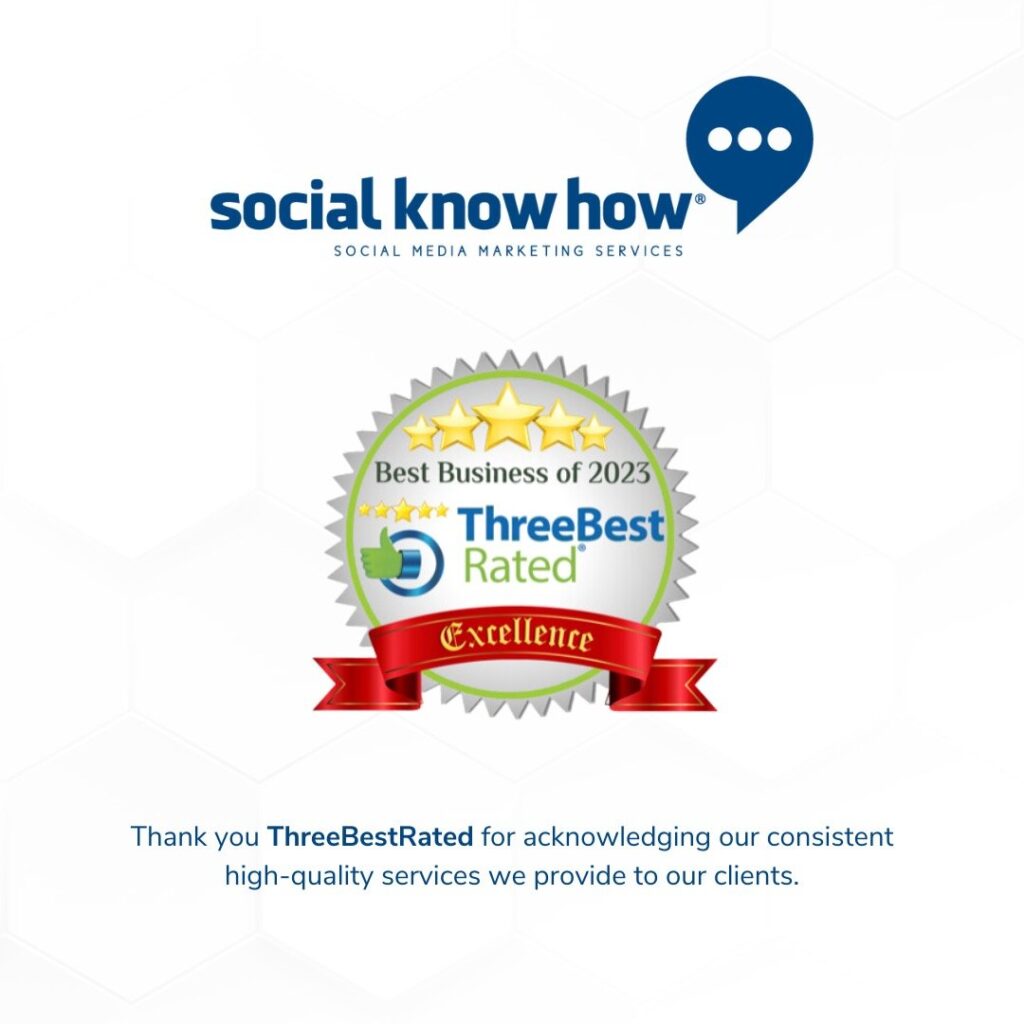
Understanding the Significance of This Award
ThreeBestRated isn’t just another reviewing platform. They have a stringent 50-point inspection that dives deep into the intricacies of a business, from customer reviews and cost-effectiveness to overall service satisfaction. Social Know How’s recognition is a clear testament to our commitment and the quality we bring to the table.
Here’s What It Means For You
CONSISTENT EXCELLENCE:
This recognition assures you that when you collaborate with us, you’re partnering with one of the industry’s finest. We’re not resting on our laurels, though. We’re driven to keep raising that bar.
ADAPTIVE STRATEGIES:
The digital landscape isn’t static. It shifts and evolves. With this award, we’re more motivated than ever to refine and tweak our strategies to ensure your brand doesn’t just fit in but stands out.
GROWTH AND COLLABORATION:
This isn’t just our win; it’s yours too. We’re looking forward to tightening our collaboration, ensuring our strategies align perfectly with your goals.
A Note of Thanks
We’ve come this far because of the trust and belief you’ve placed in Social Know How. Every piece of feedback, each project challenge, and every shared success has sculpted our path. This recognition is a shared achievement, and it’s one we’re extremely proud of.
While we’re honoured by this award, we’re even more excited for the journey ahead. Here’s to reaching new heights and achieving even more together. Cheers to our shared successes and future endeavours! 🥂
Dive into Our Success Story Now!
In the vibrant realm of digital marketing, Instagram stands out as a beacon for businesses aiming to forge genuine connections, amplify brand visibility, and catalyze sales. However, the journey from posting to profiting isn’t a straight path—it requires a comprehensive strategy. With insights from Social Know How, let’s delve into how a holistic approach to Instagram can metamorphose posts into substantial profits.
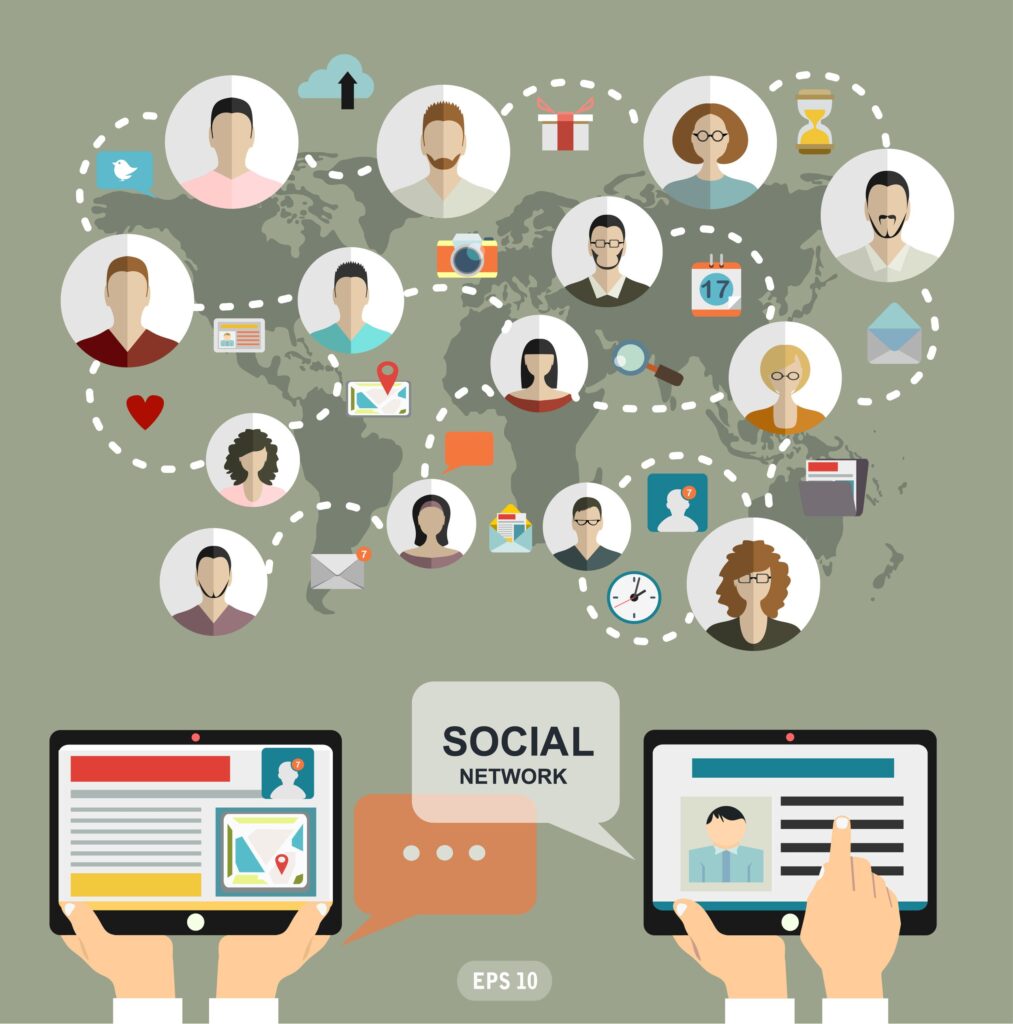
Grasping the power of social media:
In our interconnected digital age, platforms like Instagram have seamlessly woven into the fabric of our daily routines. Potential customers are immersed in social media, presenting a golden window for businesses to make their mark. Yet, visibility isn’t just about posting—it’s about strategizing with intent.
Engagement:
Instagram Engagement rate serves as a barometer for content effectiveness on Instagram. It’s a reflection of how actively your audience interacts with your content. A robust engagement rate amplifies visibility, making your brand more discoverable. Calculating it is straightforward: (Likes + Comments) / Followers x 100. This percentage mirrors the resonance of your posts with your audience. Factors like content quality, posting cadence, and even the posting hour can influence this rate. To elevate engagement, delve into features like Instagram Stories, nurture collaborations with influencers, orchestrate giveaways, and actively participate in the Instagram community.
The SOCIAL POEM Strategy:
A Game-Changer crafting a successful social media narrative requires more than intuition—it demands a blueprint. Social Know How introduces the SOCIAL POEM, a 4-step formula encapsulating Planning, Optimizing, Executing, and Managing a social media strategy that is made just for YOU. This methodology ensures businesses transcend mere posting, fostering genuine engagement, refining strategies, and adeptly managing their digital footprint.
Content:
Content is the cornerstone of Instagram success. It’s not just about aesthetics but also about resonance. High-resolution images paired with captivating captions and apt hashtags can make a world of difference. Engaging with followers—be it through comments, likes, or conversations—can cultivate a sense of community, enhancing brand loyalty.
STORIES AND COLLABORATIONS:
Stories offer a dynamic canvas to showcase brand narratives, be it behind-the-scenes glimpses, new post promotions, or real-time engagement. Collaborations, especially with influencers, can catapult your brand into new audience spheres, enhancing reach and credibility.
The Dance of Analysis and Adaptation:
The digital realm is similar to shifting sands—ever-changing and unpredictable. Success hinges on agility. Regularly sifting through Instagram metrics, discerning effective strategies from the lackluster, and recalibrating approaches are pivotal.
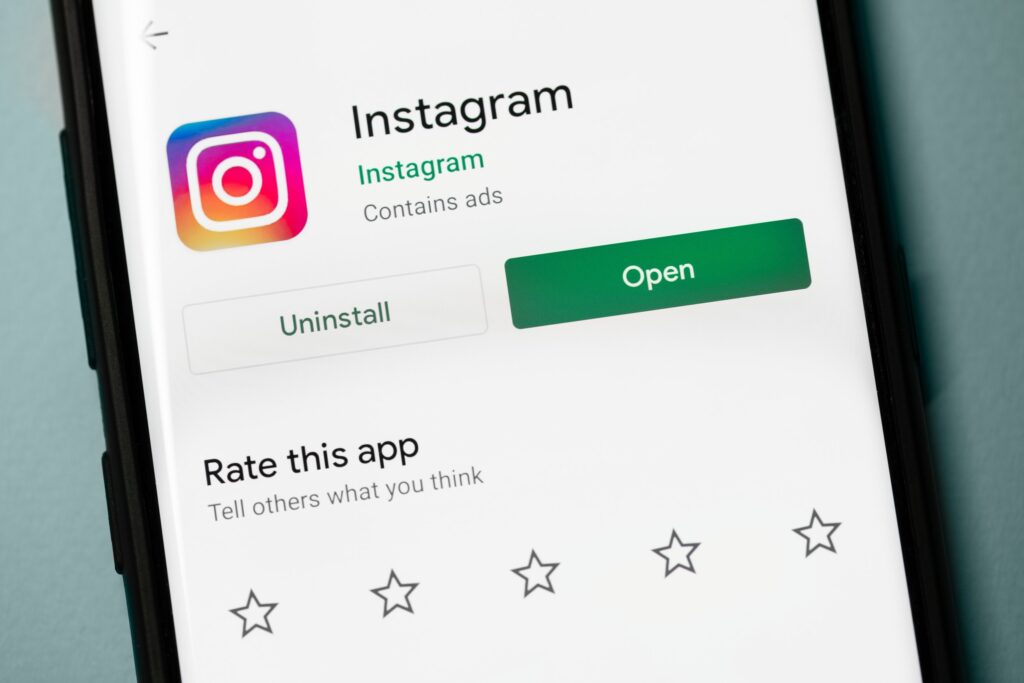
7 Key Instagram Trends for Marketers
Instagram, with its visually appealing platform and vast user base, has become an essential tool for marketers. Here are seven key trends that every marketer should be aware of:
Instagram Stories Dominate:
Instagram Stories, a feature that allows users to post photos and videos that vanish after 24 hours, has seen a meteoric rise in popularity. With over 500 million daily active users, Stories offer a unique opportunity for brands to engage with their audience in a more personal and ephemeral way. The use of interactive elements like polls, questions, and swipe-up links can drive higher engagement and direct traffic to external sites.
Influencer Partnerships Continue to Grow:
Influencer marketing on Instagram has proven to be a powerful strategy. Brands are collaborating with influencers, both macro and micro, to reach a broader audience. Micro-influencers, with their niche following and authentic content, often yield higher engagement rates than their counterparts with millions of followers. It’s essential for brands to choose influencers whose values align with theirs for a genuine partnership.
Shopping on Instagram:
Instagram’s shopping feature has transformed the platform into a digital storefront. Brands can tag products in their posts, leading users directly to their online store. With the introduction of Instagram Checkout, users can even make purchases without leaving the app, providing a seamless shopping experience.
Engagement Over Followers:
While having a large follower count can boost a brand’s ego, engagement is the real metric that matters. Comments, shares, and likes are indicators of an active and interested audience. Brands are focusing on creating quality content that resonates with their audience, leading to meaningful interactions.
Rise of IGTV and Reels:
IGTV, Instagram’s platform for longer videos, and Reels, its answer to TikTok, have opened new avenues for content creation. Brands are experimenting with these formats to provide value, entertain, and connect with their audience in novel ways.
Instagram Analytics:
Data-driven decision-making is crucial in today’s digital age. Instagram provides a plethora of analytics for businesses to track their performance. From audience demographics to post-performance metrics, brands can leverage this data to refine their strategies and achieve their goals.
Diverse and Inclusive Content:
The global call for diversity and inclusion has resonated on Instagram. Brands are making conscious efforts to showcase diverse voices, stories, and products. This not only fosters a sense of community but also appeals to a broader audience.
Unlock the Power of Social Media with Social Know How!
From harnessing the capabilities of AI to streamlining your digital marketing campaigns, to mastering the art of effective communication in this digital era, Social Know How is your go-to partner.
Ready to take your Instagram game to the next level? Get your FREE Social Media Assessment today!
In the dynamic world of digital marketing, staying ahead of the competition and ensuring optimal engagement with customers is paramount. As businesses grapple with these challenges, AI and automation emerge as game-changers. For companies aiming to refine and streamline their digital marketing campaigns, embracing these technologies is no longer a luxury but a necessity. Let’s delve deeper into the transformative power of AI and automation in digital marketing.

Understanding AI’s Role in Digital Marketing
Artificial Intelligence (AI) has transcended its theoretical confines and is now a tangible force driving innovation across industries. In digital marketing, AI’s prowess lies in its ability to process vast datasets, offering insights that were previously unimaginable.
CONSUMER BEHAVIOR ANALYSIS
AI tools can track and analyze user behavior across websites, social media platforms, and even offline touchpoints. This granular understanding allows businesses to tailor their strategies, ensuring they resonate with their target audience’s preferences and needs.
PREDICTIVE ANALYTICS
Beyond understanding current trends, AI can forecast future behaviors and preferences. This predictive capability enables businesses to be proactive, crafting marketing strategies that address emerging consumer needs.
CHATBOTS AND VIRTUAL ASSISTANTS
These AI-driven tools enhance customer engagement by offering real-time responses, guiding users through purchase processes, and providing personalized product or service recommendations.
The Power of Automation in Digital Marketing
While AI offers insights and intelligence, automation brings efficiency to the table. It’s the engine that ensures digital marketing processes run smoothly, consistently, and effectively.
SCHEDULED ENGAGEMENTS
Automation tools allow businesses to schedule posts, emails, and other engagements, ensuring consistent touchpoints with their audience. This consistency builds brand reliability and trust.
DATA-DRIVEN CAMPAIGNS
Automated analytics tools can continuously monitor campaign performance. This real-time feedback loop ensures that businesses can tweak their strategies on-the-go, optimizing for best results.
CUSTOMER JOURNEY MAPPING
Automation tools can craft detailed customer journey maps, highlighting touchpoints, preferences, and potential areas of friction. This map guides businesses in refining their engagement strategies at every step of the customer journey.

AI and Automation: A Match Made in Digital Heaven
The confluence of AI and automation offers a synergistic effect that amplifies the benefits of each.
ENHANCED PERSONALIZATION
By combining AI’s data analysis with automation’s efficiency, businessescan achieve personalization at an unprecedented scale. Whether it’s sending personalized emails or offering tailored product recommendations, this duo ensures each customer feels unique.
PROACTIVE STRATEGY CRAFTING
AI’s predictive analytics, when fed into automated marketing tools, allow businesses to craft strategies that are not just reactive but also proactive. Businesses can anticipate market shifts and consumer preferences, positioning themselves advantageously.
OPTIMIZED RESOURCE ALLOCATION
With repetitive tasks handled by automation and data analysis managed by AI, marketing teams can focus on creative and strategic endeavors. This optimal resource allocation ensures better ROI and more innovative campaigns.
Conclusion: The Future of Digital Marketing is Here
For businesses keen on streamlining their digital marketing campaigns, the integration of AI and automation is the way forward. These technologies offer a promise of campaigns that are not just efficient but also deeply resonant with the target audience. By harnessing their combined power, businesses can craft strategies that are data-driven, personalized, and future-ready.
In the ever-evolving realm of digital marketing, staying ahead of the curve is not just an advantage; it’s a necessity.
At Social Know How, we’ve always championed the blend of innovation with tried-and-true marketing strategies. Ready to elevate your digital marketing game? Let’s embark on this enlightening journey together. Social Know How is here to guide and assist you for all your digital marketing needs,.
Introduction
Ever felt the frustration of sifting through a sea of leads, only to find a handful that are genuinely interested? Meta’s revamped Instant Forms might just be the solution you’ve been waiting for. Let’s dive deeper into this exciting feature!
The Evolution: Rich Creative Instant Forms
Meta is always at the forefront of digital innovation, and they have been subtly pushing advertisers towards Instant Forms for a while. Now, they’ve raised the stakes with the Rich Creative instant form type. Imagine being able to infuse your forms with rich content, making them not just a point of contact but a mini-landing page that can drive conversions.
For example, as a travel agency, envision displaying breathtaking photos of sandy shores or peaceful mountain hideaways directly in the form. Such visual allure might not only prompt users to complete the form but also connect with your brand.
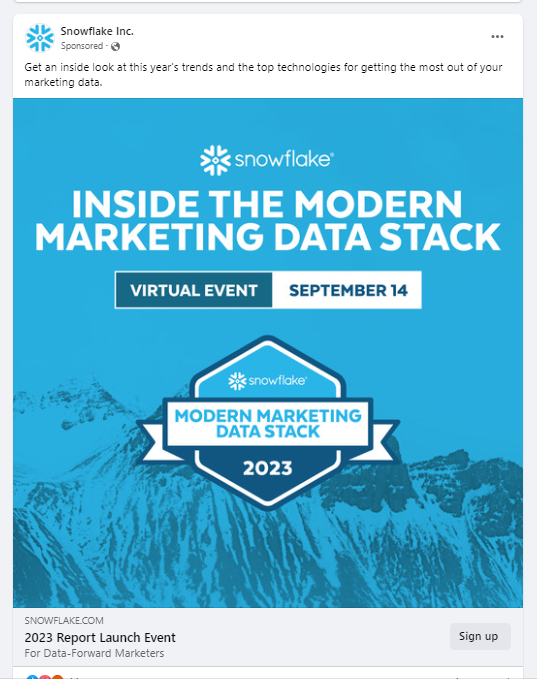
Decoding Instant Form Types
Meta offers an array of form types to cater to diverse business needs. Here’s a closer look:
MORE VOLUME (DEFAULT):
Ideal for businesses like local eateries or gyms that want to spread the word quickly. For example, a local cafe could use this form type to offer a special discount for first-time visitors.
HIGHER INTENT:
Perfect for businesses that offer specialized services. Consider a real estate agency that’s showcasing luxury homes. They’d want leads that are genuinely interested in high-end properties.
RICH CREATIVE:
This is where creativity meets lead generation. A boutique fashion store, for instance, could showcase their latest collection, enticing users to sign up for an exclusive preview.
Higher Intent: Quality Over Quantity
The Higher Intent form type acts as a filter, separating casual browsers from those genuinely interested. Features include:
Inline Context: A simple note like “Our expert will call you within 24 hours” can set clear expectations.
Review Screen: This acts as a checkpoint. For instance, someone signing up for a workshop can double-check the date and time before confirming.
Slide to Submit: It’s a small gesture, but sliding to submit can reduce accidental or impulsive submissions.
Rich Creative: A Canvas for Your Brand
The Rich Creative form type is a marketer’s dream. It offers:
Color Customization: Imagine a cosmetic brand using shades of their best-selling lipstick as the form’s color theme.
Relevant Imagery: A fitness center can showcase images of people working out, resonating with those looking to start their fitness journey.
Additional Text: An online course platform can detail course modules, duration, and even instructor credentials, providing immense value within the form itself.
The Power of Instant Forms in Modern Marketing
SEAMLESS USER EXPERIENCE
One of the primary advantages of Meta’s Instant Forms is the seamless user experience they offer. In today’s fast-paced digital world, users expect quick and easy interactions. Filling out lengthy forms can be a deterrent for potential leads. Instant Forms, with their pre-filled fields and mobile-optimized design, ensure that users can provide their information with minimal effort. This ease of use can significantly boost conversion rates.
DATA-DRIVEN DECISIONS
With Instant Forms, businesses can gather a wealth of data about their audience. This data isn’t just limited to contact information. By analyzing which forms have higher completion rates or which fields users often skip, businesses can gain insights into their audience’s preferences and pain points. This data-driven approach allows for more targeted and effective marketing campaigns.
PERSONALIZATION AT ITS BEST
The Rich Creative form type, in particular, offers a level of personalization that was previously hard to achieve. For instance, a skincare brand could use the form to offer personalized product recommendations. Users could answer a few questions about their skin type and concerns, and the form could instantly provide product suggestions tailored to their needs. This not only enhances user experience but also boosts sales by offering relevant product recommendations.
BUILDING TRUST WITH POTENTIAL LEADS
Transparency is key in today’s digital landscape. Users want to know how their data will be used. The Higher Intent form type, with its inline context feature, allows businesses to set clear expectations right from the start. By informing users that a representative might contact them or that their data will be used for a specific purpose, businesses can build trust and foster a sense of transparency.
Strategies for Success
To make the most of Instant Forms, businesses should:
A/B Test Different Form Types: Not sure which form type will work best for your audience? Run A/B tests to compare the performance of different forms and optimize accordingly.
Offer Incentives: Encourage users to complete the form by offering incentives such as discounts, exclusive content, or early access to new products.
Follow Up Promptly: Once a user completes an Instant Form, ensure that there’s a prompt follow-up. Whether it’s a welcome email, a discount code, or a call from a representative, timely follow-ups can enhance user experience and boost conversions.
Wrapping Up
Meta’s new Rich Creative instant form type is not just an update; it’s a revolution in lead generation. It’s time to move beyond traditional forms and embrace this dynamic feature. Dive in, experiment, and watch as your leads transform from mere numbers to genuinely interested prospects.
At Social Know How, we’re not just about strategies; we’re about results. Harness the power of Meta’s Instant Forms and beyond with our expert guidance. Dive into a world where every click counts, every lead matters, and every campaign resonates. Don’t just be part of the digital noise; let’s make your brand unforgettable.
